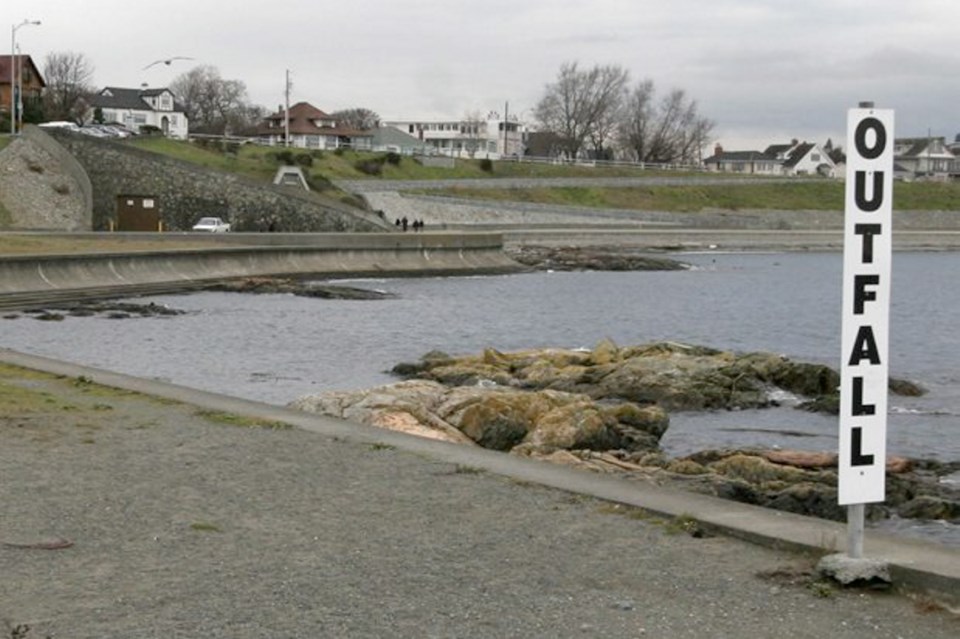The lack of sewage treatment in the capital region has the Washington state Senate considering travel restrictions to Victoria for state workers.
Under the proposal, costs for travel to Victoria would not be reimbursed unless a catastrophe or other serious situation is involved.
The self-described “prime instigator” is Rep. Jeff Morris, whose district includes the San Juan Islands opposite the Saanich Peninsula.
“We want to send a clear message that we’re not happy with the progress on primary sewage treatment,” he told the Times Colonist Friday.
He said he has followed the sewage controversy for more than 20 years and finds the “backsliding” on the issue very frustrating.
Morris said he’s well-versed in cross-border issues, and has gone to bat several times to keep the Sidney-Anacortes ferry running.
On Thursday, the Washington House of Representatives voted 50-47 in favour of restricting travel to Victoria. The state’s 49 senators will now have until March 10 to make amendments.
If passed by Washington’s Senate, the measure would be in effect until the completion of a primary sewage treatment system for Victoria and region, according to the state’s budget deliberation documents.
Victoria Mayor Lisa Helps said Washington state is “not threatening a tourism boycott, but they’re doing something that I consider to be a little bit more serious that I think we should pay attention to.
“This is our No. 1 trading partner and our No. 1 partner in terms of diplomatic relations,” said Helps, who was chairing Friday’s meeting of the core-area liquid waste management committee when she made her comments. “It does seem funny, it does seem like we’re in a reality TV show and these weird things are happening.”
Environment Minister Mary Polak released a statement referring to the 2020 federal-provincial deadline for sewage treatment saying that “Washington state residents can rest assured that Greater Victoria will have sewage treatment in the near future.”
A letter to Capital Regional District directors from Tourism Victoria underscored concerns about a decline in travel by Washington state residents resulting from media coverage of such a ban.
“This action puts the destination, our 900 business members and the 19,000 private sector [tourism] employees in a difficult position,” wrote Tourism Victoria chairman Bill Lewis. There are “tens of millions of dollars in private-sector investment in place,” he said. “While this action is symbolic and related to Washington state employees, it is clearly intended to inspire other organizations to follow suit.” Tourism Victoria would like to protest the legislation “and argue that Victoria is making progress and that this tactic is unnecessary.”
Tourism Victoria CEO Paul Nursey said the number of state employees coming to Victoria to do business is small and, in general, boycotts don’t have a big impact on numbers. “But they take a lot of management — it’s time for the CRD directors to make a decision and build a sewage treatment plant.”
Sewage treatment deliberations are still at the stage of deciding on a site.
In the measure’s current form, the state would reimburse travel to Victoria only for emergencies involving a “catastrophic event that requires government action to protect life or public safety,” for court orders, critical work by an agency, judicial work approved by the chief justice of the Washington Supreme Court and agricultural commissions, boards and inspection programs.
If the Washington Senate does not pass the budget-related bill, it will be up to Gov. Jay Inslee to convene a special legislative session to reach consensus.
— With a file from Jeff Bell
Mayor's letter: Victoria takes Washington state's bill seriously



